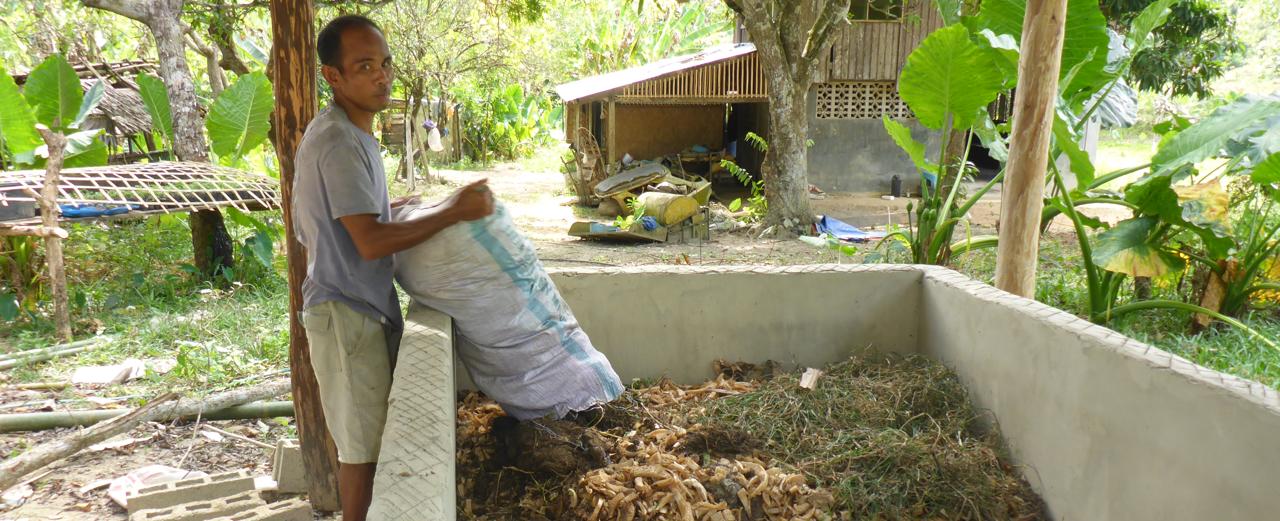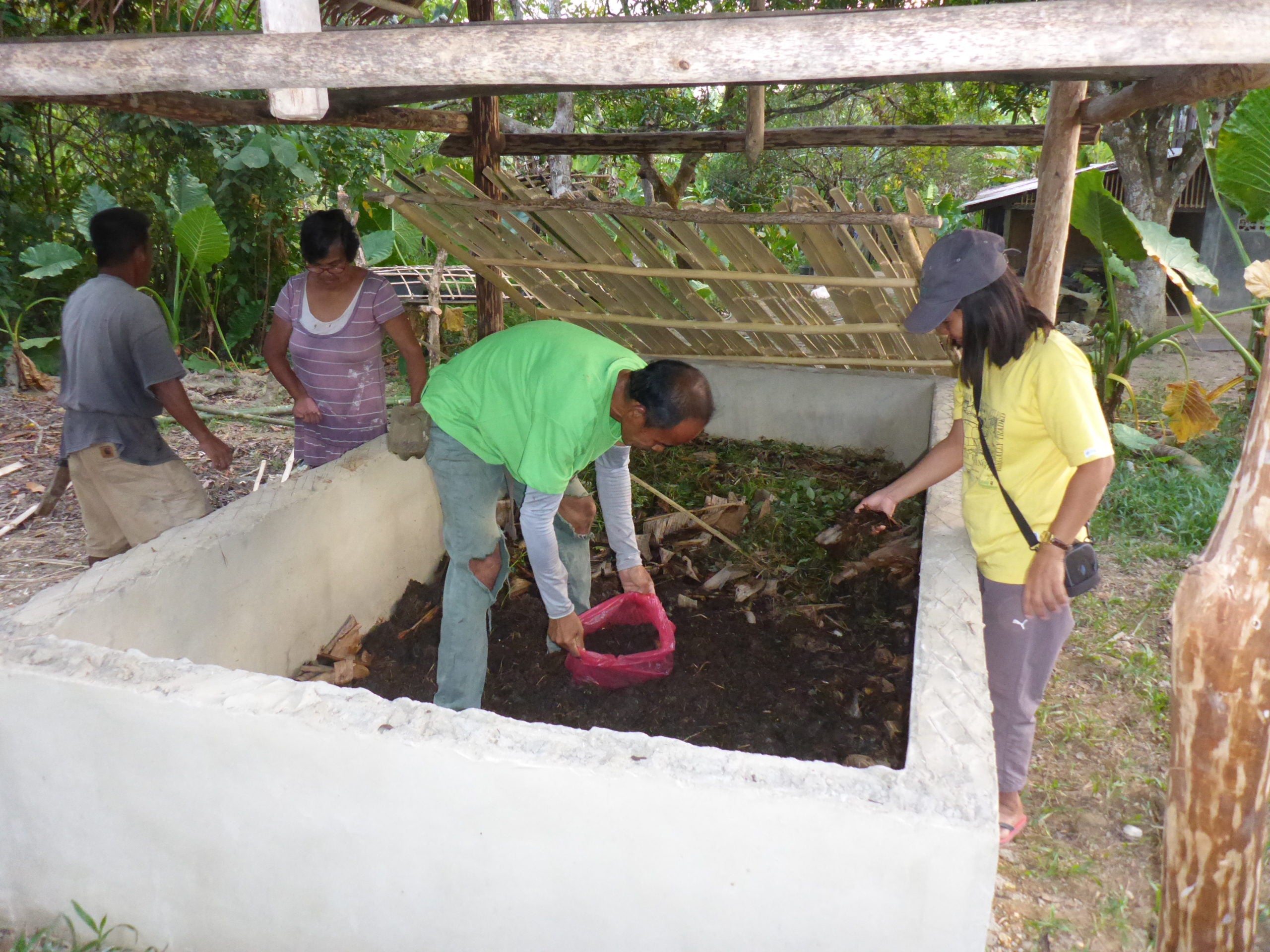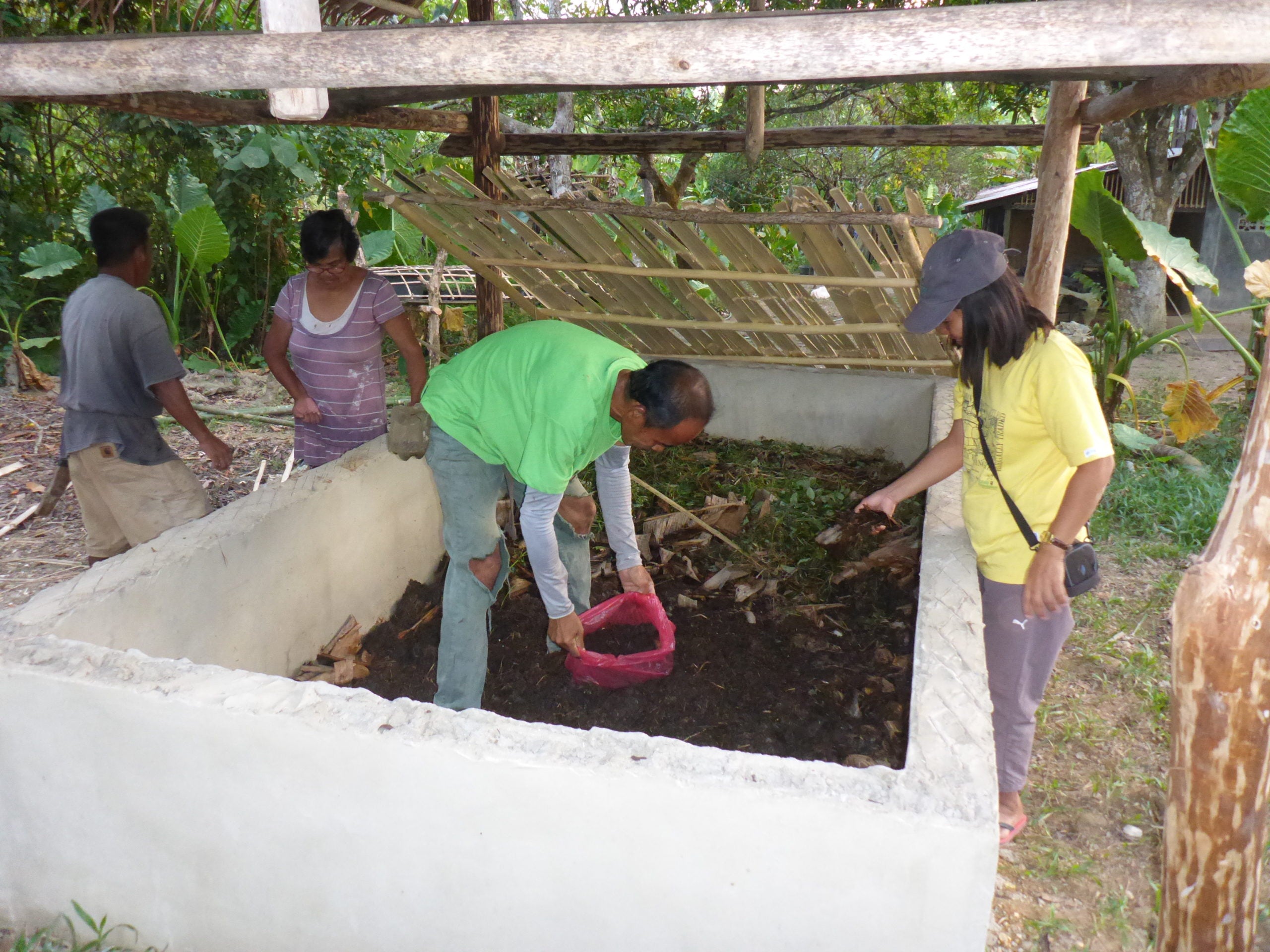Day 15
A handful of compost worms for a farming family in the Philippines
 Worms can also be very different
Worms can also be very different


Sustainable agriculture in the Philippines

need
Increasing income and improving agricultural yields for farming families in Dumarao (Philippines).
activity
Local NGO distributes compost worms to farming families and trains them in how to keep and use them to produce organic fertilizer.
Measurable performance
Number of compost worms and farming families who have switched to sustainable farming.
Result
The income of the farming families has increased by at least 40 percent compared to the start of the project. The amount of pesticides in the soil and drinking water has decreased.
Systemically relevant impact
The living conditions of the village population are improving in the areas of health, income and water supply.
background


The good deed
AboutPhilippines

Manila
Capital city

108,116,620
Population
$9,540
Gross domestic product
per capita per year
Rank 106 of 189
Human Development Index
(Human Development Index)




